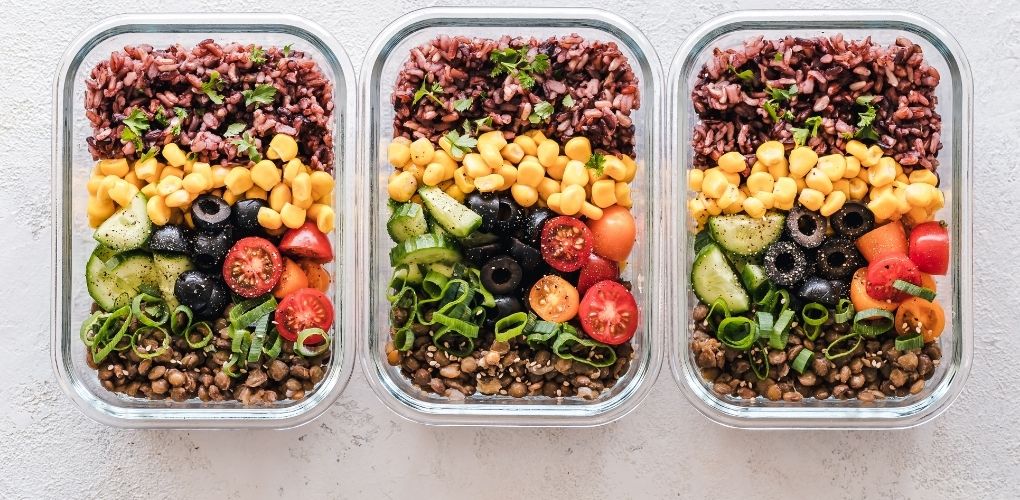
Healthy eating does not necessarily mean giving up on your favorite foods. Vegetables can be included in your daily meals, depending on what stage you are at. Vegetables can be used in a variety of ways, such as soups, smoothies or sandwiches. Vegetables come in a wide variety of colors, and they provide different vitamins and minerals. Fresh fruits and vegetables are the best choices, but you can also choose to eat canned or dried fruit. Pregnancy can make you more vulnerable to germs and infections so it is important to wash all vegetables thoroughly before you eat.
It is advisable to avoid smoked or cold meats during pregnancy. Instead, choose tinned and fresh fish that is cooked until it is steaming. Some countries consider deli meats safe. However, women should not eat them until after they have given birth. Talk to your midwife or gynecologist if you have any questions about the best foods for pregnancy. It is important to seek the guidance of your doctor before making a substitution for food.

The growth of the baby is supported by protein-rich foods. For a pregnant woman to be able to give birth, she needs more protein. Eating more protein-rich foods will support the baby's brain development and heart health. High-protein foods may also have vitamins and fiber, which could be helpful for pregnancy. You can include more grains into your diet. They are high in fiber, folate and B vitamins. These can help reduce the risk of constipation, hemorhoids, and other issues.
Dark-green vegetables contain a lot of folate. This is vital for the development the fetal neural tube and the growth the uterus. For a more varied meal, you can also add frozen veggies to your meals. This is a great way to increase the amount of protein in your diet. It is also high in iron, vitamin C, fibre, and iron. These foods are also rich in iron and fiber.
It is great for calcium intake, which is vital for the growth of the baby. Other sources of calcium, such as milk, are also available. If you are lactose-intolerant, drink low-fat milk instead. Low-fat dairy products have a lower level of fat than other dairy products. These foods provide essential nutrients for your baby's growth. It is important to consider the different food groups when selecting what to eat.

High-protein foods are a good choice. While these foods do contain protein, it is best to avoid red and other red meats. In addition to chicken, beef, fish, and turkey, you should eat plenty of nuts and whole grains. These foods are full of essential nutrients, fiber, and other nutrients that help support the growth of the baby. The best choices for pregnant ladies are beans and the peas. They are also rich in iron and other vitamins so they are a great choice.
FAQ
What does milk do?
Next time you buy milk think about what you could do with it. It may be a good idea to reduce your coffee intake.
Children and adults both have found milk to be beneficial. Milk contains nutrients like vitamin D. Calcium, potassium, phosphorous, magnesium, and other essential nutrients.
It helps with digestion, promotes weight growth, and improves bone strength. The immune system is stronger and there are fewer illnesses in adults who consume dairy products.
People who have difficulty digesting milk are also likely to be able to enjoy its many benefits, even if they do not have stomach problems.
Drink more milk than soda and juice. Milk contains more calcium and vitamin D, which can strengthen your bones and teeth.
Plain low-fat yogurt is another option if milk tastes bland to you. Yogurt is a great alternative to milk since it is lower in calories and higher in protein.
Yogurt also contains probiotics, which aid in digestion and improve immunity.
If you're having trouble sleeping, try taking a glass of warm milk before bedtime. Warm milk relaxes muscles and increases serotonin levels, helping you get a good night's rest.
What is the best work out for men aged 40+?
Older men will find that the best workouts give them more energy as well as improve their stamina.
It is important to remember that most people over 40 experience a decline in testosterone, leading to lower sex drive.
You can still exercise, however. Research has shown that exercise regularly can increase testosterone in men.
So, if you want to improve your sexual performance, you can start with an aerobics routine.
Is there any benefit to doing yoga?
Yoga has been popular since ancient times. Yoga is very popular with celebrities as well as ordinary people who wish to be fit and healthy.
Yoga is great because it stretches your muscles while strengthening them. It also relaxes your mind and makes you calmer.
Yoga is more focused on breathing than other forms of exercise.
Different poses can be practiced to increase flexibility and balance.
Can I consume alcohol while working out?
Yes. Alcohol can increase energy expenditure and speed up recovery, as well as reduce soreness.
Alcohol also increases insulin sensitivity, making it easier to absorb glucose.
Alcohol can cause dehydration. This can slow down your metabolism. Also, alcohol can reduce testosterone production, which may lead to lower muscle-building potential.
This is why women shouldn't have alcoholic drinks before exercising. Women who drink heavily should wait at least 24 hours between drinking and working out.
Breastfeeding women should stay away from alcohol.
Men should limit their alcohol intake to just one drink each day.
Statistics
- By John Thompson Take a whopping 38% off a set of PowerBlock Pros. (menshealth.com)
- 10 pounds in a month is likely during a lean bulking phase, especially for beginners. (muscleandstrength.com)
- An estimated calorie range for moderately active adult males falls between 2,200 to 2,800 calories per day, depending on age. (eatright.org)
- Candidates and applicants must pass all four tests at 70% (minimum level) to graduate from Basic Deputy U.S. Marshal (BDUSM) Training. (usmarshals.gov)
- Cardmembers earn 5% Back at Amazon.com with a Prime Credit Card. (amazon.com)
External Links
How To
How can I burn fat while exercising?
Exercise can help you burn calories and increase your metabolism.
Moderate intensity exercise is a safe way to lose weight.
To burn fat while exercising, follow these tips:
-
Do cardio exercises such as walking, swimming, jogging, cycling, running, or elliptical training.
-
You can exercise for 30 mins three times per week.
-
You can lose weight by adding strength training to the routine.
-
Avoid doing intense exercises. You can build muscle without having to lose muscle tissue.
-
Keep hydrated during exercise. Water helps to flush out toxins from the body and maintains proper hydration.
-
After working out, drink low-fat protein shakes. Protein shakes are great for your muscles and energy.
-
Eat smaller meals throughout the day, so you don't feel hungry between meals.
-
Don't skip breakfast! Skipping breakfast can lead to fatigue and sluggishness.
-
Take care to your mental well-being. Stressful situations can slow down metabolism.
-
Keep a positive attitude. Studies have shown that people who are convinced they are overweight gain more weight than those who feel they look attractive.
-
Get enough rest. Lack of sleep makes it harder to burn fat.
-
Stay active. Make sure you get up and move every hour.
-
Maintain a healthy diet. You will feel fuller longer if you eat right.
-
Find ways to relax. A tense mind doesn't allow your body to release stress hormones that break down muscle tissue.
A balanced diet provides all the nutrients necessary for growth and development.
Instead of eating three large meals a day, eat six smaller meals every day. This gives your body time and energy to process the food.
Calcium is required to support strong bones. Calcium is available in dairy products like milk, yogurt, fortified soy beverages, orange juice, cereal, bread, and cereals.
Calcium can be found in leafy green veggies, beans, tofu and nuts as well as seeds, nuts and cheese.
Your body needs vitamin D to absorb calcium. Vitamin D is found in certain fortified foods, such as egg yolk and fatty fish.
Vitamin E is crucial for skin health. It's found in vegetable oils, wheat germ oil, peanuts, almonds, sunflower seeds, and corn.
Your body requires zinc for normal immune function and wound healing. Zinc can also be found in legumes, oysters, meats and whole grains.
Zinc deficiency can cause fatigue, loss of appetite, depression, and impaired immunity.
Eating too much sugar causes insulin resistance, which increases blood glucose levels. Insulin resistance can lead to weight gain.
Insulin resistance develops when there are high levels of free radicals in the bloodstream. Free radicals are molecules that have unpaired electrons, which can cause damage to cell membranes or other parts of your body.
Free radicals come mainly from food additives, pesticides, herbicides, preservatives, smoking, air pollution, radiation, chemicals in cosmetics, lotions, and household cleaning supplies.
Free radicals can lead to cancer and heart disease, diabetes mellitus, arthritis, asthma, and premature aging.
A well-balanced diet rich in antioxidants is the best way for you to avoid free radical damage. Antioxidants protect against oxidative damage.
Vitamin C (found on citrus fruits), Beta carotene, found in carrots and sweet potatoes, spinach and broccoli, cantaloupe (found in tomatoes, mangoes and peppers), and Vitamin E (found nuts, olive oil and avocados).
Selenium, copper and manganese are all antioxidant nutrients.
Selenium helps to protect cells against free radicals and oxidative stress. Selenium is also found in Brazil nuts.
Copper protects your eyes, brain, eyes and red blood cell. Copper can be found in meat, shellfish, meat, and organ meats.
Manganese forms an essential part of bone structure. Manganese is found as a component of bone structure in brown rice (spinach, bananas), prunes, raisins and oatmeal.
Zinc is essential for normal growth, reproduction, wound healing, and average growth. Zn can also be found in white fish, lean cuts of meat, poultry, and eggs.